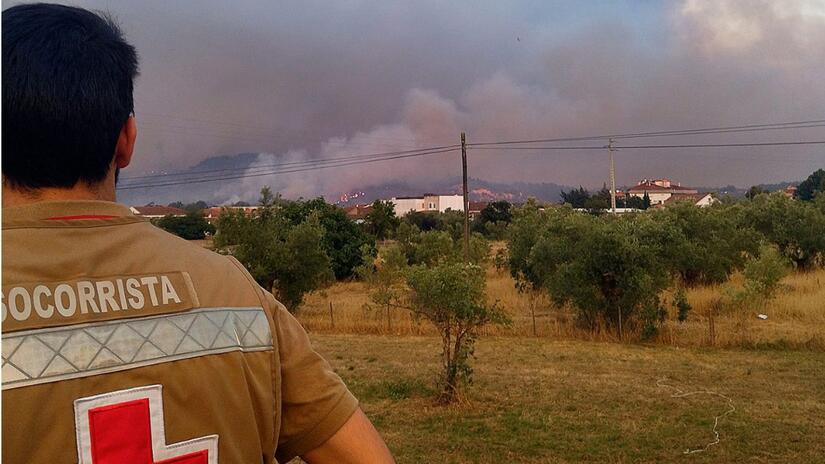Budapest, 14 July 2022 - Extreme temperatures have spiraled countries into dangerous heat waves and wildfires across Europe. The International Federation of Red Cross and Red Crescent Societies (IFRC) urges cities and communities to prepare to avoid a further disaster.
Since May, Europe has been among the fastest “heat wave hot spots” in the world. Forecasts show no sign of abating. Many parts of western Europe are experiencing extreme temperatures and countries like Portugal are battling raging wildfires, impacting thousands of people.
“With the climate crisis, this heat is part of our ‘new normal’,” says Maarten Aalst van, Director of the Red Cross Red Crescent Climate Centre. “These deadly events are now more frequent and more intense.”
In the past ten years, climate- and weather-related disasters have killed more than 400,000 people, affected 1.7 billion others and displaced an average of 25 million people each year world-wide. The people most at risk of heat waves include older people, children, pregnant women, and those with pre-existing health conditions. Heat waves have cascading impacts in other areas of society, such as reduced economic output, strained health systems and rolling power outages.
Staff and volunteers from National Red Cross and Red Crescent Societies across the region are supporting communities preparing for and impacted by the heat waves. At the same time, teams are responding to the devastating wildfires most notably in Portugal, but also Spain, Italy, France, Greece and Turkey brought on by the extreme heat.
“Many have had to evacuate their homes with the few things they can carry," says Ana Jorge, President of the Portuguese Red Cross. "Our medical teams are focused on ensuring people are getting to safety, providing critical health care to those suffering from burns and other injuries and providing them with a bed to sleep in and the necessities as they decide their next steps.”
With heat waves becoming more likely around the world as the climate crisis worsens, more preparedness and early warning systems are required to reduce and manage the risks.
“People are not always aware of the dangers of heat. But when communities understand the risks and take simple measures to prepare for it, they can prevent unnecessary tragedies,” says van Aalst. “We urge cities and communities to prepare and take the necessary steps to save lives, now and in the long term.”
For more information and to arrange an interview:
- In Budapest: Corrie Butler, [email protected] +36 704306506
- In Athens: Georgia Trismpioti, [email protected] +30 6971809031
Note to Editors:
- IFRC’s Heat Wave Guide for Cities and Urban Action Kit are resources for city officials, urban planners and community organizations to anticipate and plan for extreme urban heat and reduce deadly risks.
- C40’s Urban Cooling Toolbox provides approaches to lower urban temperatures and reduce the impact of the urban heat effect; the Heat Resilient Cities Benefit Tool helps city planners and decision-makers quantify the health, economic and environmental benefits of adaptation actions.
- A heat wave is an extended period of unusually high temperatures and often high humidity. Extreme heat can cause shock, dehydration and other acute illnesses, and worsen cardiovascular and respiratory diseases.
- There is now a mountain of evidence that climate change is increasing the occurrence of deadly heat waves. For instance, scientists have concluded that climate change has made the 2022 heat wave in India and Pakistan 30 times more likely, the 2019 heat wave in western Europe at least 10 times more likely, the 2019-20 heat wave in Australia that contributed to the devastating bushfires 10 times more likely, and that the extreme heat in the northwest US and Canada in 2021 would have been virtually impossible without climate change. For details, see for instance, the World Weather Attribution analyses.

